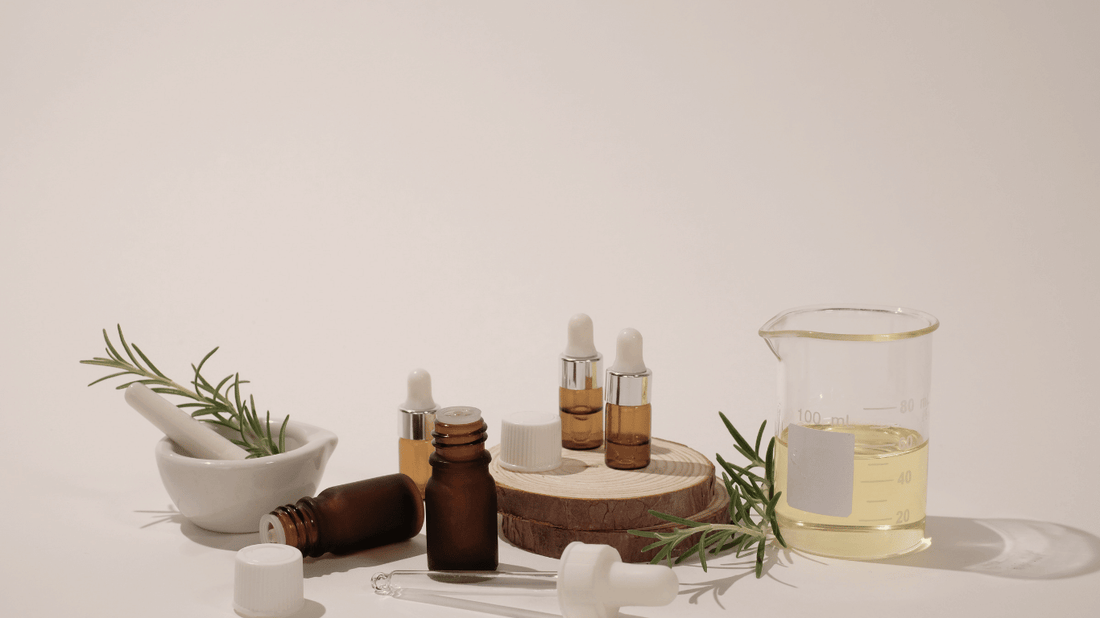Linalool in skincare is an increasingly popular topic due to its diverse benefits and natural origins. Linalool is a naturally occurring terpene alcohol that can be found in over 200 species of plants, including lavender, basil, coriander, citrus fruits, mint, and birch trees. It is known for its characteristic floral scent, similar to that of bergamot oil and French lavender. This compound is often used in natural and synthetic forms in various personal care products, providing a pleasant aroma and multiple therapeutic benefits.
Functions of Linalool in Skincare

Fragrance Addition
One of the primary uses of Linalool in skincare products is as a fragrance ingredient. Its ability to impart a pleasant floral scent makes it a popular choice in products ranging from perfumes and colognes to lotions and cleansers. The presence of Linalool enhances the sensory experience of using skincare products, making routines feel more luxurious and enjoyable. Our organic hand wash is a perfect example, where the Linalool derived from essential oils such as orange and bergamot adds a refreshing and invigorating fragrance.
Anti-inflammatory Properties
Linalool in skincare is highly valued for its anti-inflammatory properties. Research has shown that Linalool can help soothe and calm irritated skin, reducing redness and inflammation. This makes it beneficial for individuals with conditions such as acne, psoriasis, and rosacea. The anti-inflammatory action of Linalool helps maintain a balanced and healthy complexion, reducing the discomfort associated with these skin issues.
Antimicrobial Action
Another significant function of Linalool in skincare is its antimicrobial properties. Linalool has been found to be effective against a variety of bacteria, including those that cause acne. By incorporating Linalool into skincare products, manufacturers can offer solutions that not only cleanse the skin but also help in controlling acne breakouts. This antimicrobial action ensures that the skin remains clear and free from harmful bacterial infections.
Benefits of Linalool for the Skin

Soothing Irritation and Redness
One of the primary benefits of Linalool in skincare is its ability to soothe irritation and reduce redness. Its anti-inflammatory properties help calm the skin, making it ideal for use in products designed for sensitive skin types. By reducing inflammation, Linalool aids in alleviating the discomfort and visible signs of skin irritation, promoting a healthier and more even complexion.
Managing Acne and Bacterial Growth
Linalool is beneficial for the skin in managing acne and bacterial growth. Its antimicrobial properties help reduce the presence of acne-causing bacteria on the skin. By preventing bacterial buildup, Linalool aids in controlling acne breakouts, ensuring the skin remains clear and blemish-free. This makes it a valuable ingredient in facial cleansers, toners, and acne treatment products.
Regulating Sebum Production
Another essential benefit of Linalool in skincare is its ability to regulate sebum production. Sebum is the natural oil produced by the skin to keep it moisturised. However, excessive sebum production can lead to oily skin and clogged pores, which in turn can cause acne. Linalool helps balance sebum production, making it beneficial for dry and oily skin types. By maintaining the right balance of oil on the skin, Linalool ensures that the skin stays hydrated without becoming excessively oily.
Potential Drawbacks and Sensitivities

Risk of Skin Irritation
While Linalool in skincare offers numerous benefits, it is essential to be aware of potential drawbacks. Linalool can oxidize when exposed to air, and this oxidized form can cause skin irritation, particularly in sensitive individuals. Therefore, it is crucial to use products with Linalool in controlled concentrations to minimize the risk of irritation.
Allergic Reactions and Sensitisation
Linalool is listed as a common allergen by the European Commission. Some individuals may experience allergic reactions or sensitisation to Linalool, resulting in symptoms such as redness, itching, and swelling. For those with sensitive skin or known allergies, it is recommended to conduct a patch test before using products containing Linalool. Our organic hand wash is formulated with care, ensuring that it is gentle on the skin while still providing the benefits of Linalool in a safe and effective manner.
Recommendations for Sensitive Skin Types
For individuals with sensitive skin types, choosing products with lower concentrations of Linalool or opting for formulations specifically designed for sensitive skin is advisable. Products in our scent-free range are ideal for those who need to avoid potential allergens, as they are free from Linalool and other fragrance ingredients, ensuring they are safe and gentle for ultra-sensitive skin.
Comparative Analysis with Other Skincare Ingredients

Comparison with Other Terpenes
Linalool is part of a larger family of terpene compounds commonly used in skincare for their aromatic and therapeutic properties. Compared to other terpenes like limonene and geraniol, Linalool stands out due to its balanced fragrance profile and skin benefits. While limonene is known for its strong citrus scent and geraniol for its floral aroma, Linalool offers a milder, more versatile scent that complements a wide range of products. Linalool's anti-inflammatory and antimicrobial properties also make it particularly beneficial for skincare.
Synergistic Effects with Other Essential Oils
Linalool works synergistically with other essential oils to enhance the overall efficacy of skincare products. For example, when combined with lavender oil or bergamot oils, Linalool's calming and soothing effects are amplified, providing enhanced benefits for irritated or sensitive skin. This synergistic relationship improves the fragrance profile of products and boosts their therapeutic properties, making them more effective in promoting healthy skin.
Safety and Regulatory Guidelines
FDA and European Commission Guidelines
Various regulatory bodies, including the FDA and the European Commission, have evaluated the safety of Linalool in skincare. Linalool is included on the European Commission's list of known allergens, and its concentration in skin care products is regulated to ensure consumer safety. According to these guidelines, Linalool must be listed on the ingredient label if its concentration exceeds 0.001% in leave-on products and 0.01% in rinse-off products.
Recommendations for Safe Usage Concentrations
It is recommended that the concentration limits set by regulatory bodies be adhered to to ensure the safe use of Linalool in skincare products. For those with sensitive skin, using products with lower concentrations of Linalool or those that include stabilising agents to prevent oxidation can help minimize the risk of irritation. Our organic hand wash follows these guidelines, ensuring the linalool content is safe and effective for everyday use.
Conclusion
Summary of Linalool's Benefits and Risks
In summary, Linalool in skincare offers numerous benefits, including anti-inflammatory and antimicrobial properties, soothing irritation, and regulating sebum production. However, it is essential to be aware of the potential risks, such as skin irritation and allergic reactions, particularly in sensitive individuals. By understanding these benefits and risks, consumers can make informed decisions about incorporating Linalool into their skincare routines.
Final Recommendations for Skincare Use
Those looking to benefit from Linalool in skincare should choose products that use natural, high-quality Linalool and adhere to safe concentration limits. Our organic hand wash is an excellent choice, offering the benefits of Linalool while being kind to your skin and the environment. Its luxurious lather and gentle cleansing properties provide a pampering experience with every use.



 Whatsapp us!
Whatsapp us!